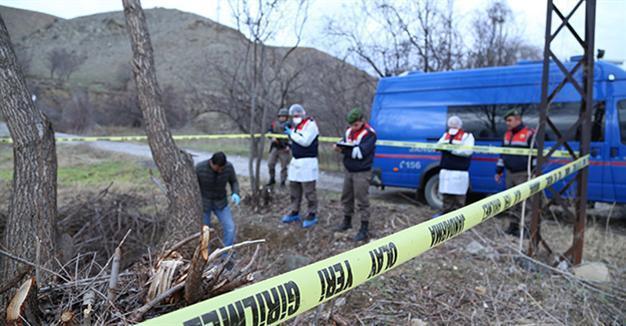Explosives found amid security discussions in Ankara
Bülent Sarıoğlu – ANKARA

AA Photos
A number of explosives, weapons and ammunition were found near a military checkpoint in Ankara on Feb. 25, amid discussions on high-level security measures planned in the wake of a deadly bombing that killed dozens in the Turkish capital on Feb. 17.
The Ankara Governor’s Office said in a written statement on Feb. 25 that a machine gun and 287 shells, a Kalashnikov rifle and 120 shells, two hand grenades, two improvised explosive devices and three bags full of explosive material had been found 800 meters away from a gendarmerie checkpoint earlier the same day, according to a report by the state-run Anadolu Agency.
The seizure came amid discussions on high-level security measures planned to be taken primarily in the capital but also in the rest of the country, as Ankara saw a second deadly bombing in less than six months on Feb. 17, when a Turkish suicide bomber identified as Abdulbaki Sömer blew himself up at a busy spot near the country’s top military headquarters and the Turkish parliament, killing at least 29 people.
Having been thoroughly discussed at a meeting headed by Turkish Parliament Speaker İsmail Kahraman late Feb. 24, Ankara will beef up efforts for the security of its parliament.
The compound of the Turkish parliament will be surrounded by high-security metal fences which were previously used for the area surrounding the country’s presidential complex, while unmanned aerial vehicles (UAVs) with firing systems are to be placed at specific spots around the compound.
Among the security measures discussed in the meeting were placing X-ray machines for cars at the gates of the parliament compound and even searches of Turkish lawmakers’ official cars, a security measure stated in a report by Turkish security officials that led to a small debate among parliamentarians.
Administrative employees in parliament will also collect guest information for those who visit parliament.
The security measures recently discussed in parliament were part of a set of measures Turkish Prime Minister Ahmet Davutoğlu announced late last week following a five-hour security meeting in the aftermath of the Ankara bombing.
“Every province has special [security] needs,” Davutoğlu had said on Feb. 20, adding that Ankara was in a special position as it was the capital and hosted governmental, state and opposition buildings, along with envoys from many countries.
“No security concept can succeed without the people’s support,” the Turkish premier said, asking for help from Ankara locals.
“We have to protect freedoms, as no measures can perfectly remove risks,” he added, commenting on criticism against the measures.
Elaborating on the new security mechanisms the premier had announced, Turkish Interior Minister Efkan Ala said technology would be used more prominently in the implementation of the new security mechanisms.
“That [technology] will be more prominent. Civil servants will be in official uniforms... Electronic devices will be used more,” Ala said on Feb. 21, when asked to comment on the new security mechanisms revealed after the Feb. 17 Ankara attack.
At least 29 people were killed and 81 others were injured in the second attack to target the country’s capital after alleged Islamic State of Iraq and the Levant (ISIL) militants bombed a peace rally in a major city thoroughfare and left 102 dead in October 2015.
